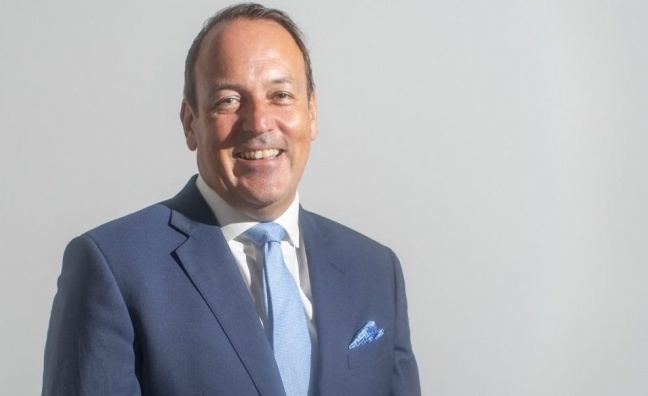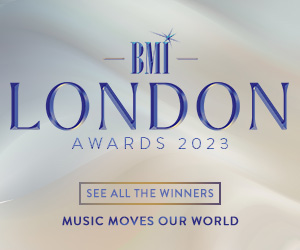The Intellectual Property Office (IPO) has launched a consultation on potential changes to copyright law.
The law relates to so-called equitable remuneration, which ensures that artists and labels share the revenues from sound recordings broadcast or played in public in the UK. In 2022, PPL collected over £188 million for the broadcasting and public playing of music in the UK. That covers AM/FM and DAB radio or, for example, when recorded music is played in a nightclub or gym.
As part of the consultation, the IPO is looking at extending that right to foreign artists in the UK who don’t currently benefit from radio royalties and public playing.
“The government intends to change how certain rights are extended to foreign nationals, to ensure UK law works for both creators and users and is consistent with the UK’s international commitments,” said the IPO.
The consultation will be open here until March 11, 2024.
IPO chief executive Adam Williams (pictured) said: “This consultation is focused on an important and complex issue, and it’s crucial that we gather a range of evidence and views. We strongly urge anyone with an interest in this topic to have their say and respond to the consultation by 11 March, 2024.”
In the main, there are reciprocal agreements around the world that mean a foreign national would receive public performance royalties as an artist, including from radio stations in the UK, as long as British nationals are similarly remunerated in that artist’s country of origin.
The one big anomaly is the US – the biggest recorded music market in the world – which does not provide a public performance right. So the broadcast or public playing of recordings does not generate royalties (with some exceptions for digital such as internet radio stations).
This consultation is focused on an important and complex issue
Adam Williams
Under the law as things stand, any non-UK label (including from the US) can license and secure remuneration for use of their recordings in the UK, including broadcasting and public playing. But UK law applies different eligibility criteria for rights of performers on those recordings. A performer is only eligible for rights in their performance if they are a national of a qualifying country with a reciprocal agreement.
So, for example, a US label would receive public performance payments in the UK, but the American artist on that label would not. In the US, which lacks the public performance right, neither a UK artist nor the corresponding label receives those payments.
It means that UK users of ‘foreign’ music, such as broadcasters and shops, gyms and nightclubs, have to pay to play music from certain countries even though users in those countries do not pay to play British music.
“This results in costs for UK users of foreign music, likely in the tens of millions of pounds per year, that do not have any clear corresponding benefits to the UK creative industries, to UK users, or to UK consumers,” notes the IPO in its consultation document.
Under the current system, the UK public performance revenues for some foreign recordings go entirely or largely to the non-UK record label, with nothing for the foreign national performing on the recording. However, the IPO notes that contracts between artists and record labels can mean that some of those revenues end up being paid through to the featured artists involved in a recording.
If the proposal to extend a public performance right in the UK to all foreign nationals goes ahead, it would have a significant impact on some foreign labels. They would need to pay a greater proportion of UK broadcasting and public playing revenues to the artists on their recordings than under the present system.
According to the IPO’s estimates, this would cost US record labels £170.1 million over the period 2024 to 2033. With the US labels retaining half of the public performance payments (under the principle of equitable remuneration), US artists would be the beneficiaries as they receive the other half of that income (approximately £17m to share a year). However, as noted above, some US artists do currently receive their share of those UK public performance payments based on their contract, even though there is no provision in UK law for equitable remuneration.
UK labels working with foreign artists not covered by reciprocal deals may face costs, as they may need to share a greater proportion of their UK broadcasting and public playing revenues with those foreign performers. However, the IPO expects the impact on UK labels to be small.
“There may be some transitional and ongoing costs to PPL, the UK body that collects and distributes broadcasting and public playing revenues in the UK, as it would need to distribute greater amounts of revenue to US performers than under the [present system] (under which it would instead continue to pay through US music revenues largely to US record labels),” noted the IPO.
The government is actively considering the proposal to extend the rights of foreign public performers in line with labels from other countries.
It is also considering introducing that system but limiting the extension to pre-existing recordings, while withdrawing the right to public performance income for foreign labels who are not part of a reciprocal agreement with the UK for new recordings. Under this scenario, US labels would no longer receive any public performance income from radio and public playing of their music released after the reform was implemented in the UK.
For the UK broadcast sector, such a move would be a huge reduction in payments currently going to US labels. In terms of breaking UK talent and supporting British artists, there could be a concern that with US music effectively free to play – as with UK music on radio in the US – domestic acts might be squeezed out by UK broadcasters looking to save money.
There are multiple options listed as part of the consultation process, as well as the key questions for consideration.

 FOLLOW
FOLLOW 







